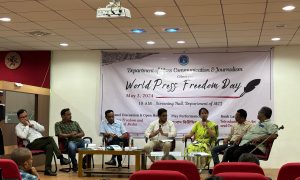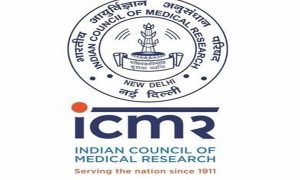Indian Knowledge and India’s contributions to mathematics, astronomy, philosophy, psychology, yoga, architecture, medicine as well as governance, polity, society and conservation will be incorporated in an appropriate and engaging manner, wherever relevant, into the existing school curriculum and text books.
This ‘message’ may not go down well with the ‘left’ intellectuals. So long as it does not include any unsubstantiated theories in it, there should be no serious opposition to this proposal. Care should be taken to avoid distorting the facts and glorifying the past. Education is a key to open up new vistas of knowledge without being too influential as to hinder one’s liberal thinking and independent pursuit.
A healthier proposal follows immediately after this. ‘Local and tribal knowledge systems will also be included in more detail in regions where such knowledge system may hold a greater relevance with respect to local needs and customs.’(4.6.9.2)
Why should ‘local and tribal knowledge systems’ be kept confined to a particular region or locality? Will it not be wiser if it is made wider? Why do not we try to take this ‘indigenous’ wisdom to areas outside the region as a matter of pride that it deserves? Why do not we spare our efforts to formalise the hitherto unexplored potentials of ‘true’ and ‘original’ knowledge systems of our country?
The committee has done a good job when it comes to the ‘current affairs’ part. The report calls much of the material in the school curriculum ‘static’ and opines that ‘it is logical and critical to have at least one subject that can focus purely on ‘dynamic’ content. This will eventually serve as a bridge between school lessons in theory and their real world applications in practice’. (P4.6.10)
Yes. It is spot on and the committee has hit the target with a rare clinical precision. It is too good really when it says- ‘Dynamic content would involve talking about the current economic scenario, recent scientific inventions, advances in medicine, geo-political power equations around the world, trends in art and music, gender issues, environmental concerns etc. –all topics that would have a direct bearing in future on students’ lives and their livelihoods.’
We have found many faults and shortcomings in the draft report. At the same time, there ARE quite a few, if not so many, great ideas as well. To incorporate topics on current affairs is one such recommendation that would bring a new, quintessential share of the most relevant knowledge into the school curriculum.
The system has not so far offered anything outside the syllabus that would be interesting to the students. Inclusion of current affairs would help break the monotony and would ensure more active participation of the students in the class room.
Making available national text books with local content and flavour should not be a difficult task and the report has adequately covered this aspect.
‘Transforming assessment for student development’ says –the current nature of examinations – and the resulting coaching culture of today – are doing much harm, especially at the secondary school level, replacing valuable time for true learning with excessive examination coaching and preparation’.
The report carries certain suggestions and the committee calls it – ‘solution that emerges’. Some of them are – ‘students should be able to choose many of the subjects in which they take Board Examinations, depending on their individualised interests’;
‘Board examinations must also be made “easier” in the sense that they test primarily core capacities rather than months of coaching and memorisation; any student who has been going to and making a basic effort in a school class should be able to pass the corresponding subject Board Examination without much additional effort’.
‘Students should be able to take a Board examination in a given subject in whichever semester they take the corresponding class in school i.e. whenever they feel most ready; and they should be able to take any such subject Board Examination again if they feel they can study and do better.’
‘Board examination in each subject may replace the in-school final examinations for semesters or year-long courses, whenever possible, so as not to increase the examination load on students’.
Can you imagine anything more detrimental? Can you believe that the committee calls examination a ‘load’ on students? The report says that the examination should be made “easier”. (the report carries this double inverted commas on the word – easier. What does it want to convey?) Moreover, the draft gives the option to the students to take the Board Examination whenever they ‘feel’ most ready!!!
How many are aware of this ‘path breaking’ recommendation that is going to be a part of the ‘New’ educational policy? This is what perhaps the committee considers ‘revolutionising’ idea. Are we for it? Can we endorse the suggestion without any apprehension about a possible negative fall-out?
When will we come out of the false notion that to ask, to question, to test or to examine is an excruciating way of evaluation? It is NOT. It is never meant to be so. To examine is the ONLY effective and proven method all over the world of testing one’s competence.
If this system is to be diluted, or to be stamped ‘inhuman’, the whole structure of education would crumble and would fall off into a state of utter disharmony that can never again be set right by any committee or by any government rather.
To show any leniency to the students in matters of tests / examinations would be suicidal and therefore would be the severest disservice to the student community. Already, the automatic / compulsory promotions at the primary school level have started showing the ‘results’ with many of the ‘beneficiaries’ performing pathetically very bad outside the schools. The dismal performance of the younger generation at higher levels of education is a proof enough for the disastrous effect of the ‘no test; all pass’ system introduced a few years ago.
Populist approach towards education must be opposed and resisted strongly as this would affect the children from lower strata of the society much more than those from affluent society. By this reckless practice of going soft on evaluating one’s knowledge, the children are deprived of a quality coaching and the opportunity of gaining a competitive spirit required to facing the challenges of life. In the absence of a need to prove themselves, the children are allowed to go scot free for all their shortcomings in acquiring the much needed basic, fundamental knowledge. This is the real ‘appeasement’ that looms large- bound to destroy the knowledge seeking power of the children and the youth.
By offering an ‘easier’ Board Examination and the option to the students to take the exam when they ‘feel most ready’, the new education policy (draft) is, perhaps inadvertently, playing a highly preposterous game capable of leaving disastrous consequences.
The committee may kindly ponder over the recommendation and take a hardened stand on the issue of Board Examinations.
May we earnestly hope better sense would prevail?
(to continue…
Baskaran Krishnamurthy.
Mail: [email protected]




























 WhatsApp us
WhatsApp us
Pingback: 메이저바카라
Pingback: 먹튀검증-5
Pingback: Cobrico Plumber
Pingback: best online pharmacy
Pingback: fullz credit card
Pingback: คอนโดเงินเหลือ
Pingback: pinewswire
Pingback: bitcoin era
Pingback: dragon pharma nolvadex
Pingback: dumps pin shop
Pingback: Functional Testing
Pingback: CICD
Pingback: Panasonic KX-TG7205RU manuals
Pingback: onze website
Pingback: Auto Glass Anytime Ellicott City
Pingback: replica rolex cosmograph daytona
Pingback: munib.org
Pingback: blocking screenshots
Pingback: indica strains
Pingback: nova88
Pingback: mistresskaydian.com
Pingback: DevOps Solutions & Services
Pingback: FUL
Pingback: sbobet
Pingback: buy cocaine Sydney Australia
Pingback: where to buy mushrooms online vancouver canada
Pingback: custom long range rifle build
Pingback: sbo
Pingback: her latest blog
Pingback: golden teacher mushrooms legal,